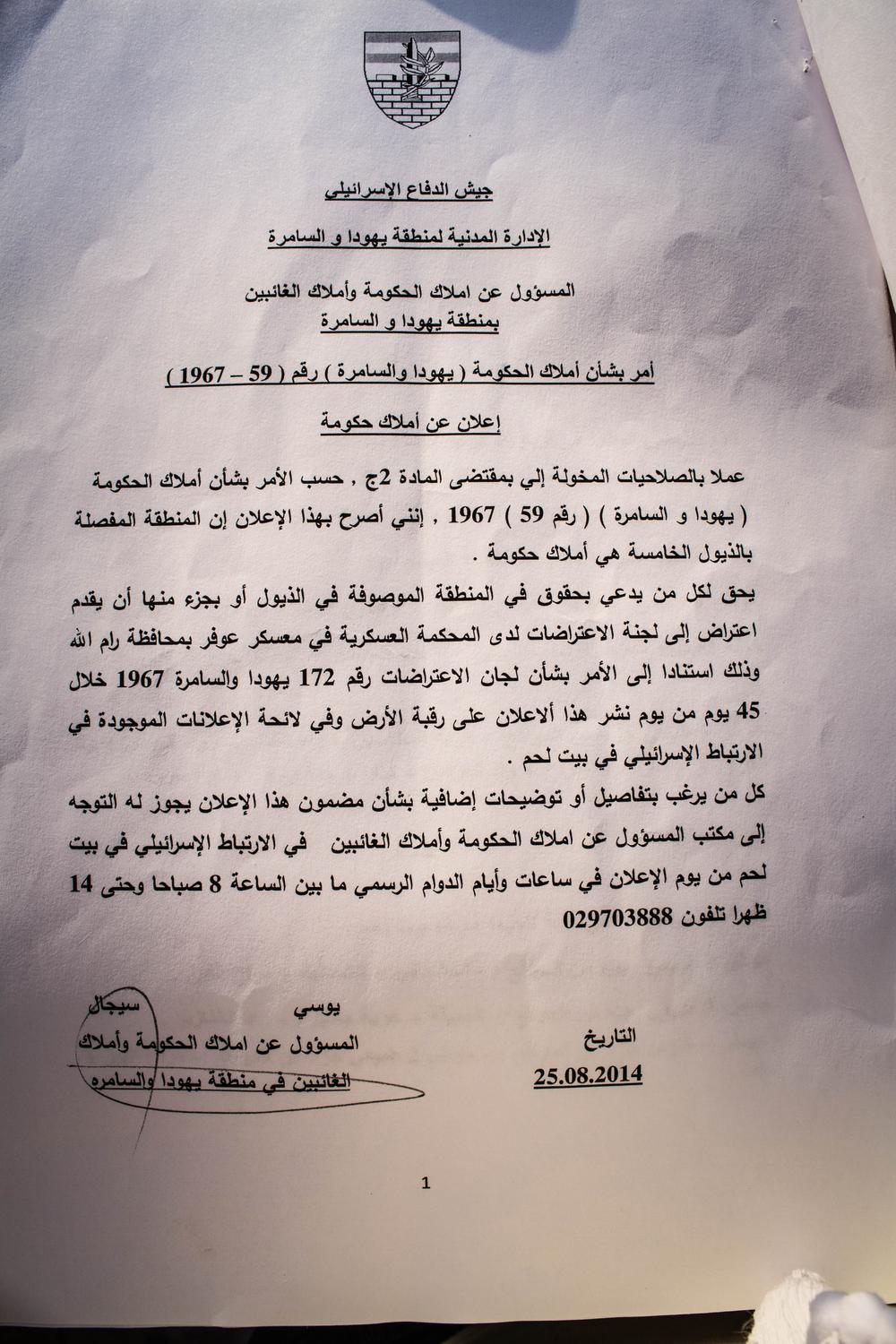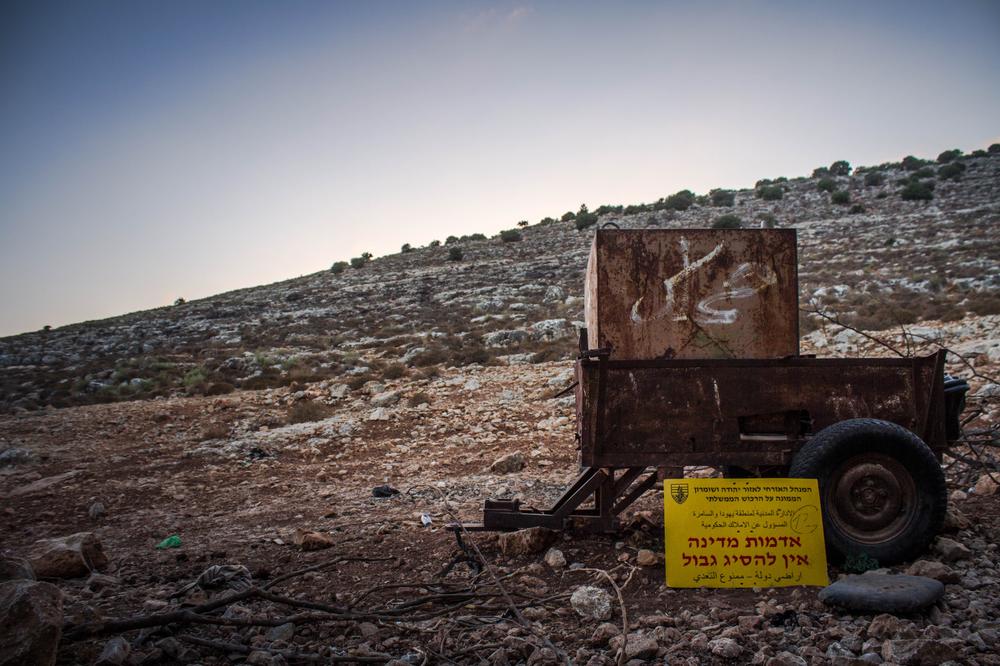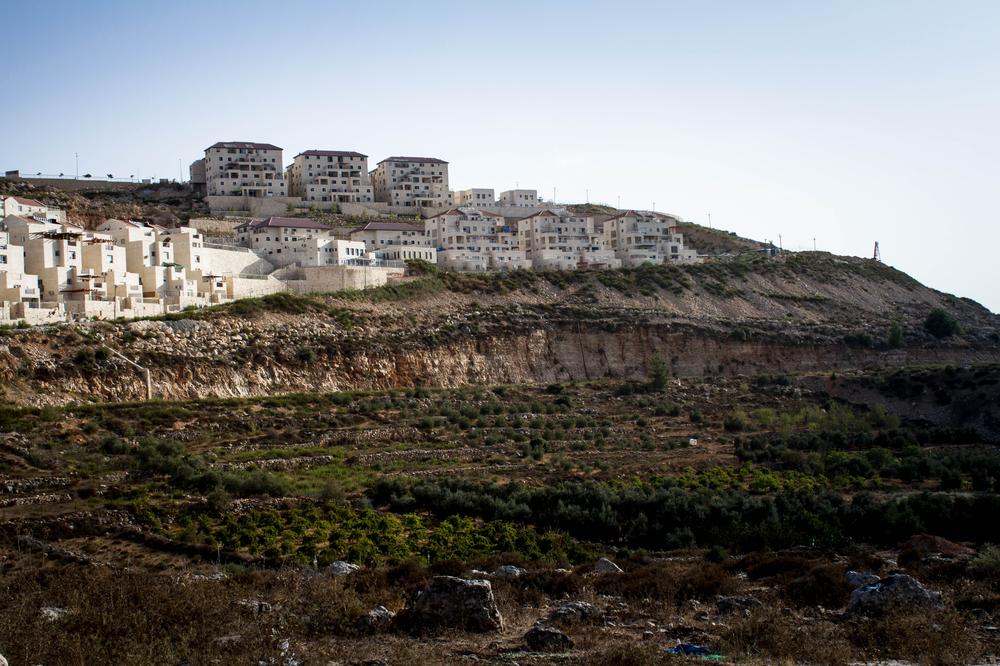Wadi Fukin, ocuppied West Bank - Israel recently announced its decision to seize nearly 400 hectares of land in the occupied West Bank, a move anti-settlement activists termed the largest land grab in 30 years. At the time, Palestinian President Mahmoud Abbas called on Israel to cancel the appropriation. "This decision will lead to more instability. This will only inflame the situation after the war in Gaza," presidential spokesman Abu Rdainah said. In a statement published on its website, Peace Now also condemned the land confiscation and said that it would further damage the chance of achieving a lasting peace between Israelis and Palestinians based on a two-state solution. The Palestinian village of Wadi Fukin sits just west of Bethlehem along the Green Line, and is surrounded on three sides by Israeli settlements that are constantly growing. Residents of Wadi Fukin were recently handed down eviction notices and had some of their farmlands destroyed, all with the purpose of forcing them to abandon their village. The villagers have refused to leave and now face a lengthy struggle to stay on their land. | |
View As Slideshow >>

/Vinciane Jacquet/Transterra Media
Official letter to the villagers announce that their land is now 'state land'. The letter was written in Hebrew and Arabic and pinned on every cardboard sign planted in the land. The farmers have 45 days to appeal the decision.

/Vinciane Jacquet/Transterra Media
On every soon-to-be-seized land, the Israeli army has planted an official 'state land' yellow sign. All of the inhabitants removed and most of them destroyed the signs.

/Vinciane Jacquet/Transterra Media
Ahmad Sokar, mayor of the village (centre), and his assistant visit Ibrahim (right), whose land is going to be seized.

/Vinciane Jacquet/Transterra Media
Mohamed, 7, kisses his father's land where they had planted olive trees six months ago. The Israeli army came and extracted them all. Mohamed's father, Mustafa, received in addition a bill of 168 shekels ($46) to pay for the trees' removal.

/Vinciane Jacquet/Transterra Media
Mohamed and his father Mustafa sit on their land. Israel cut down all of their olive trees, but they still find reason to love and laugh.

/Vinciane Jacquet/Transterra Media
Mohamed plays near his school - Israel refused authorisation to renovate the school. This part of the village is also often targeted with tear gas.

/Vinciane Jacquet/Transterra Media
Ezzat el-Hroub found out through a media statement that nearly 10 acres of his land would be taken from him. In 1980, Israel took 5 acres and blew up his house because of 'terrorist activities'. They later recognised it was 'an error'. Hroub shows the article written by the American journalist Douglas Watson about the case.

/Vinciane Jacquet/Transterra Media
Four girls from the village play in the playground. The site is threatened with demolition because it is part of the last land seizure announcement.

/Vinciane Jacquet/Transterra Media
In 1948, Israel took half of now 82-year-old Hassan's land. He now lives in a cave with his wife. 'It is not enough to take our land, they also want our caves, they want everything. But it is our life,' he said. Israel wants the cave so it can build new settlements on the mountain.

/Vinciane Jacquet/Transterra Media
This Israeli settlement sits just above the Palestinian village of Wadi Fukin. The settlement discharges sewege water directly on Palestinian farmers' land, ruining the harvest and natural springs.
|
Fuente. www.aljazeera.com
